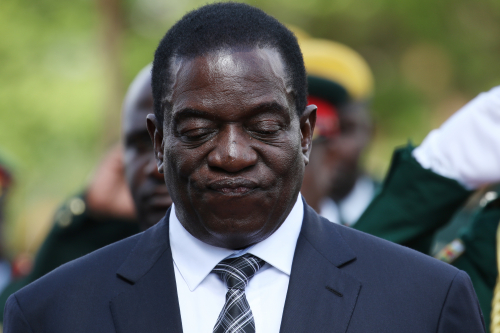
BY VENERANDA LANGA
LOCAL Government secretary Zvinechimwe Churu yesterday suggested legislated clean-up days to enforce anti-littering, saying that Zimbabweans had a habit of littering.
Churu made the call when he appeared before the Parliamentary Portfolio Committee on Local Government led by acting chairperson Bramwell Bushu (Zanu PF), where he also disclosed to MPs that President Emmerson Mnangagwa’s monthly clean-up campaigns were being largely ignored by members of the public.
“Zimbabweans have a littering culture and because the Presidential anti-littering campaign was not legislated, it was largely ignored,” Muringachuru said.
“We wish this (anti-littering campaign) could be legislated, but we are better off not creating laws but creating a good civic culture where people learn that the best thing is to have a clean environment,” he said.
He said in most urban areas, waste management required attention, adding that the pieces of legislation that govern waste management included the Environmental Management Act which is the overarching Act, the Waste Management Act and the Urban Councils Act.
“We still have a lot of uncollected rubbish and public dumping, and hence our systems of waste management have not kept up with the times. It is largely to do with investments, attitude, but when it comes to local authorities, the challenges that they experience relate to capital and limited resources which affect their ability to invest in infrastructure and equipment.
“One of the challenges is that waste management is not seen as a priority. We prioritise water treatment, but the root cause is availability of funds. Yes, government has done its bit in providing finances through the 5% devolution fund that local authorities have utilised for capital development, but local authorities face serious challenges and they end up not prioritising waste collection,” he said.
- Chamisa under fire over US$120K donation
- Mavhunga puts DeMbare into Chibuku quarterfinals
- Pension funds bet on Cabora Bassa oilfields
- Councils defy govt fire tender directive
Keep Reading
Churu said in 2018, a lot of infrastructure development at local authorities including Harare was financed through soft loans from the World Bank and Africa Development Bank, but those funds were no longer available, and as a result there was shortage of equipment to sanitise dumpsites. He also said there was limited capacity for residents to pay for waste management.
“This is made worse by that the charges that we levy are not enough for capital development costs required for sustainable waste management. The waste management vehicles are not locally assembled and many local authorities have procured wrong trucks for refuse collection. It is pointless to procure fancy equipment which is expensive to maintain,” he said.
Kadoma Central MP Muchineripi Chinyanganya (MDC Alliance) said there was no need for legislated clean-up because the country already had anti-littering by-laws, but the problem was lack of enforcement.
Harare North MP Allan Norman Markham (MDC Alliance) said there was need to come up with strong recycling mechanisms because currently the Pomona dumpsite in Harare was full and catching fire very often. He said about 700 people were at Pomona dumpsite recycling waste material informally.
Markham said two tenders were flighted for the supply of fire proof material for Pomona dumpsite, but years later none of the companies that applied had been responded to.
Local Government ministry director Erica Jones said Harare, Epworth and Chitungwiza councils were all looking for land to establish new dumpsites.











